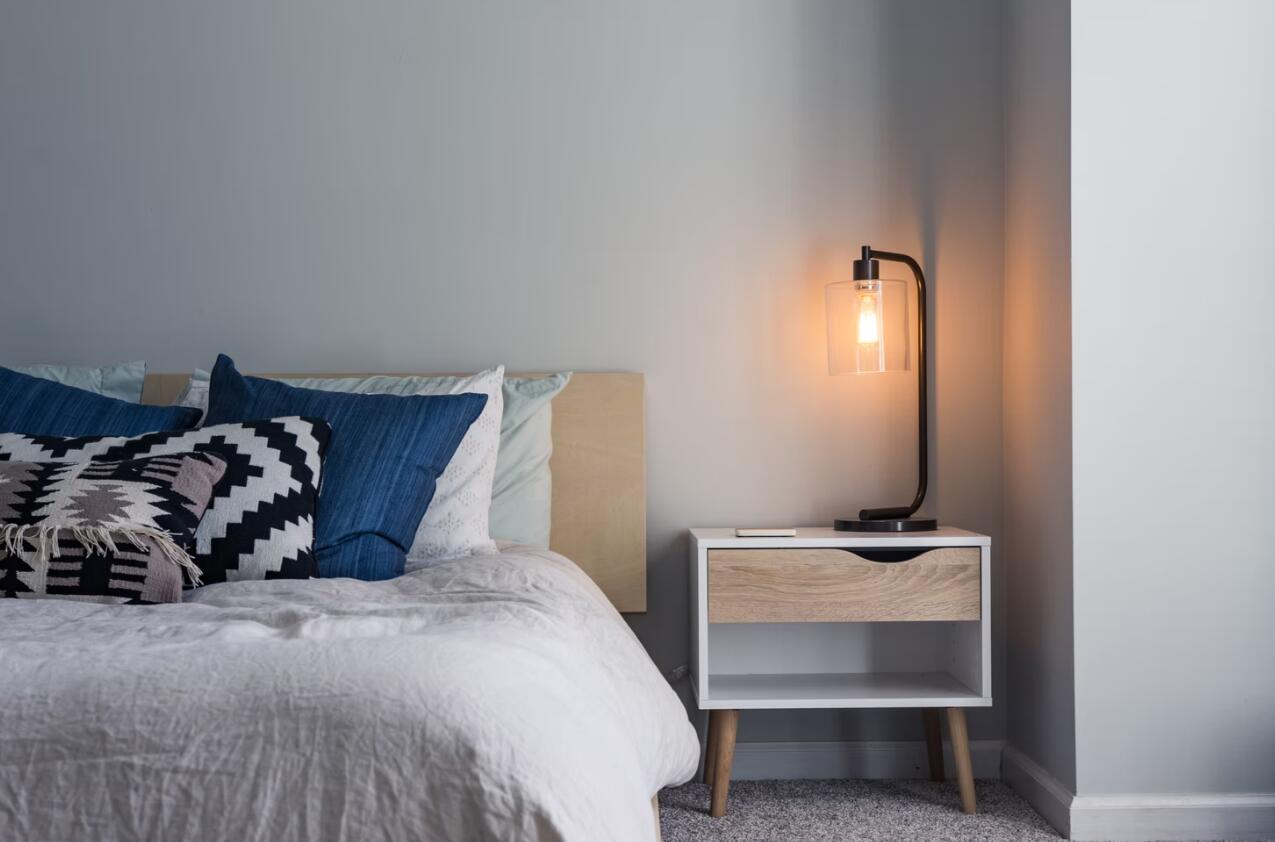Home & Garden
Never Underestimate The Importance Of A Good Night’s Sleep For Your Mind, Body, And Soul
Getting the right amount of good quality sleep is vital for our overall well being: from helping us to feel less stressed to improving our digestion to promoting better concentration, a great night’s sleep can deliver a huge number of benefits – and some might surprise you! Let’s investigate further below how clocking up 7-9 hours of kip a night can genuinely improve your life.
Speeds Up Healing
You might be sound asleep, but your body uses this time to do most of its repair work. Specific proteins are produced whilst you’re catching zzzzs which work to patch up any cells that have been damaged throughout the course of the day.
Research has shown that getting a sufficient amount of sleep boosts the immune system, too, although it’s not fully understood how this happens. The most likely explanation is the fact that an inflammation response seems to be triggered at night, which is, effectively, the immune system intentionally giving itself a workout so that it has the muscle to deal with anything that comes its way during the daytime. Scientists think this happens at night because the body has more energy to divert to the immune system while we’re asleep and also to prevent the body from being overwhelmed with this inflammation response during our waking hours. Whatever the exact reason, the result is the same: a good night’s sleep will leave your body better able to regenerate and defend itself.
One of the easiest ways to ensure you’re getting good quality sleep every night is to invest in a good quality mattress. Many of us are sleeping on mattresses that are past their best or that don’t provide the right level of support for our needs. Research the options available before making a purchase – you may be surprised by the number of different types of mattresses out there; this review is really useful for providing examples of the things you should be considering before buying. These considerations include firmness level, suitability (in terms of the type of sleeper you are), warranty, and shipping options.
Sleep Is A Stress Buster
If you’re not getting enough sleep, your body will start upping its production of stress hormones, like cortisol. As well as making you feel on edge and jittery, this can precipitate a rise in blood pressure, which is not good news for your health. Anxiety levels are often considerably heightened in those not getting in the recommended amount of nightly slumber, which can affect our ability to make decisions as well as make us more prone to panic attacks.
Good sleep has been consistently linked with effectively regulating emotions and helping us to maintain a positive outlook. A recent study also concluded that good sleep equals better emotional resilience, too. In other words, we are much more likely to be able to cope with and respond appropriately to a difficult event if we’re not sleep-deprived. Sounds obvious, but it’s now been backed by scientific research.
Boosts Cognitive Function
When we’re out for the count, our brains are hard at work processing everything that’s happened to us during that day: storing stuff away, making connections, sifting through our various emotional responses. Good sleep means that this important function can take place undisturbed. One of the major benefits of this is improved memory function and recall.
If you’re getting twenty winks instead of forty, then you will likely see a short-term decline in your ability to effectively learn new skills as well as in your reaction times. Poor sleep is also linked to an increased likelihood of developing depression, anxiety, and other mental health problems.
Can Help To Maintain A Healthy Body Weight
Research has consistently proven the link between insufficient sleep and the likelihood of developing obesity in both adults and children. There are believed to be several factors at play in this: firstly, poor sleep often results in hormonal fluctuations that cause increased appetite and, specifically, cravings for high-fat, high-calorie food. Secondly, the mental and emotional toll of sleep deprivation frequently precipitates a lack of motivation, not least due to sheer exhaustion, which can be prohibitive to exercise.
Further, our metabolism benefits from the right amount of repose: a recent study suggested that fat oxidation in the body is adversely affected by poor quality sleep: this means that fat cells in the body are converted to energy slower in those who aren’t getting their seven hours plus a night.
On top of all this, sleep deprivation can drastically affect our ability to make good decisions and avoid temptation; so, in real terms, this means that as well as being too knackered to even think about exercising, all we’re going to want to do after a bad night is to eat doughnuts and crisps and – to add insult to injury – our ability to withstand this desire will be drastically impeded.
Easy Ways To Get A Good Night’s Sleep
As well as making sure you’ve got a great quality mattress that suits and supports you, one of the best things you can do to ensure the best night’s sleep possible is to make your bedroom a tech-free zone: remove TVs, screens, and tablets, and leave your phone at the door. Start a nurturing sleep routine, too: incorporate meditation, a short breathing exercise, or ten minutes of reading – whatever will help you unwind and prepare your body and mind for sleep.
Improving both the duration and quality of your sleep could be one of the most profound things you can do for our overall well being – hitting the hay just thirty minutes earlier than usual each night could literally change your life for the better. Which, for me at least, is the perfect motivation for turning off the cute cat videos and picking up a book instead.


